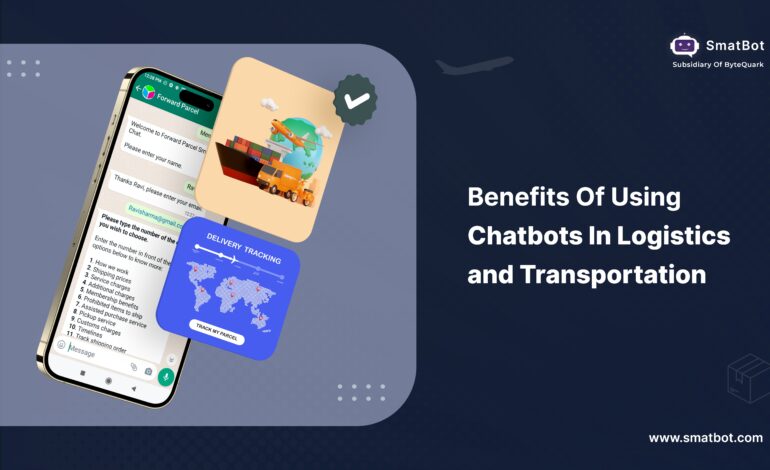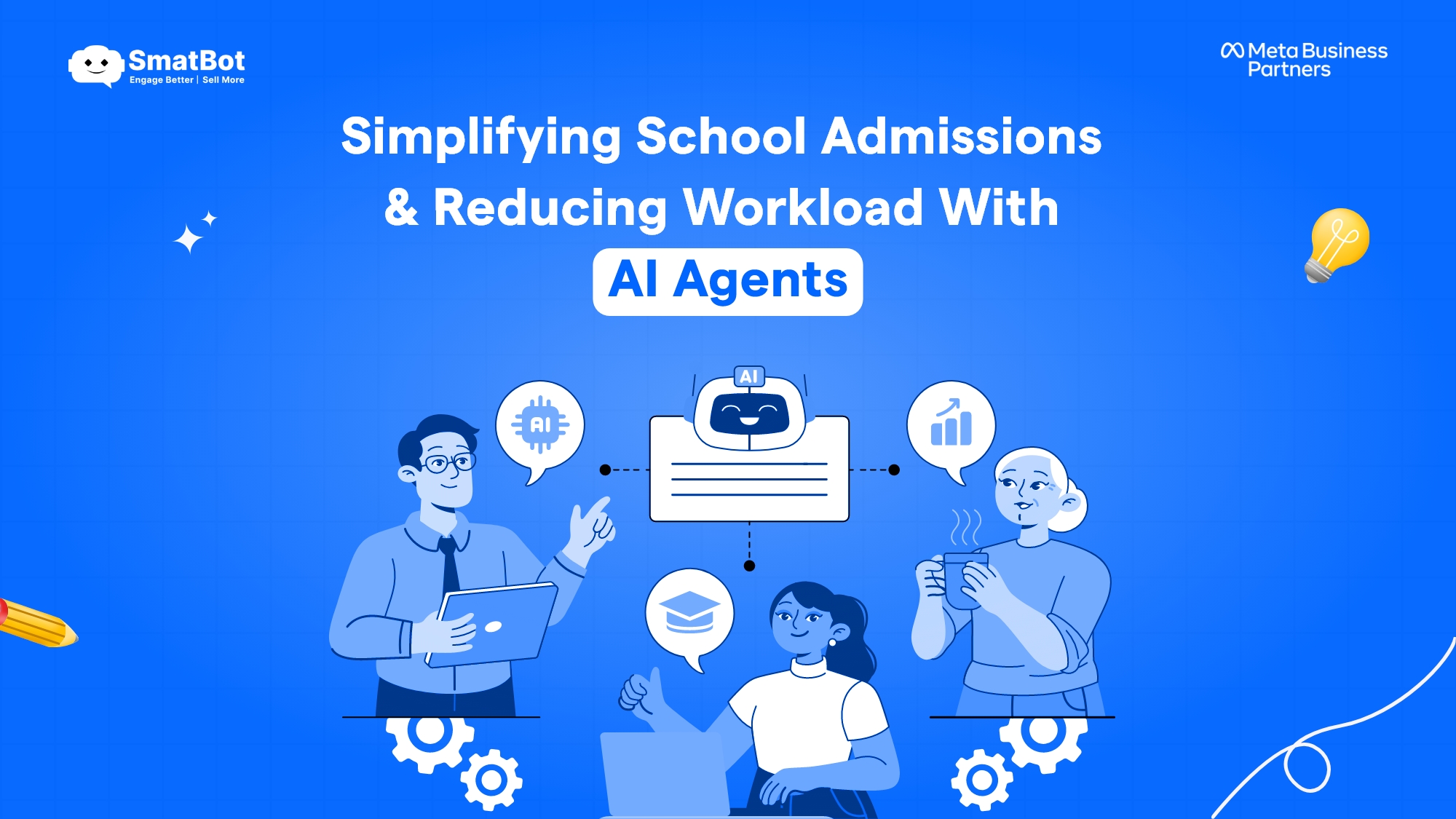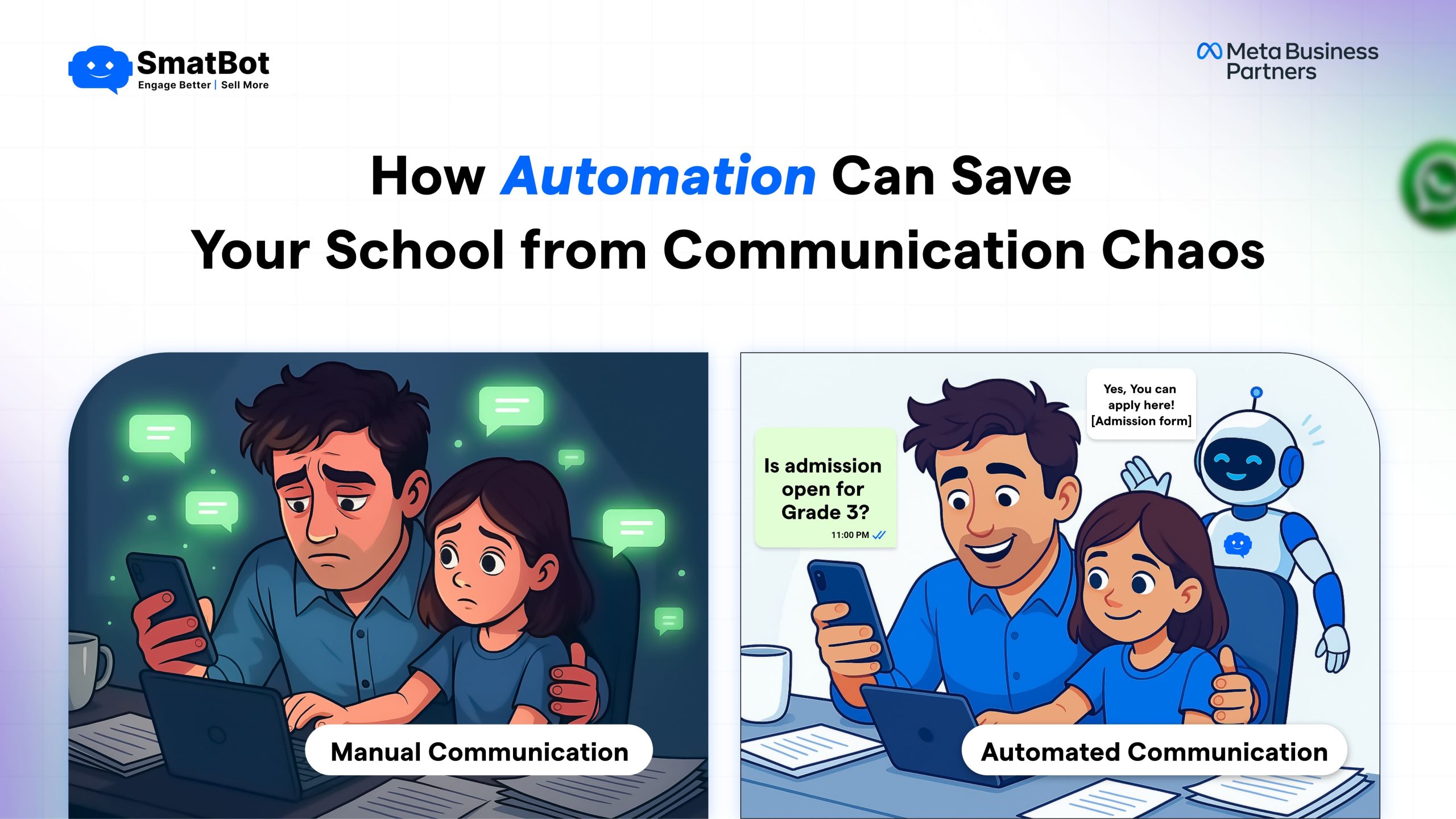Chatbots in Logistics & Transportation – Benefits & Use-cases

Benefits Of Using Chatbots In Logistics & Transportation
AI chatbots are revolutionizing industries in various ways. Below, I am highlighting some of the most common ways these chatbots help businesses in the logistics and transportation sector.
1. 24/7 Availability
A recent study shows that due to globalisation, businesses need to operate 24/7 to stay competitive. However, working round the clock can be draining and challenging for any business. That’s why many business leaders are turning to chatbot solutions for uninterrupted customer service.
Additionally, other stats reveal that 64% of clients consider continuous service as the most helpful chatbot feature. Therefore, integrating an AI chatbot with a 24/7 support feature can help logistics & transportation businesses build high customer service standards and increase customer satisfaction. Besides, consistent customer support encourages customers to become loyal brand advocates. This enhances your company’s credibility in the market
2. Process Order Amendments
Chatbots make order management easy, from taking orders to completing deliveries. They can track delivery status and ensure the smooth operation of the supply chain. Furthermore, logistics chatbots can check product details and handle order changes. In addition, they can manage delivery cancellations or changes for customers.
Other than this, chatbots can assist customers by retrieving the order details from the company’s database using the order tracking number.
3. Real-time Delivery Status And Tracking
Logistics chatbots play a key role in providing real-time delivery status and shipment tracking updates. Customers can interact with these bots and inquire about the current location of their orders, estimated delivery times or any potential delays.
AI-powered chatbots, equipped with GPS, barcode scanning and location tracking, offer relevant and up-to-date details to customers in a user-friendly manner. This enhances transparency and builds trust in the logistics process.
4. Scalability And Flexibility
Chatbots have the capability to handle multiple client interactions simultaneously, ensuring consistent response times and a positive customer experience even during peak hours. This also means you don’t need to hire additional support representatives to handle a high volume of interactions, leading to increased operational efficiency and significant cost savings.
Besides, such chatbots are highly flexible and can be easily adapted to updates and modifications. For instance, you can update them with new product details, address-related customer queries or information on added services. This adaptability empowers businesses to meet evolving market demands and consistently fulfil user expectations.
5. Multiplatform Availability
Multiplatform availability is one of the most crucial benefits of a chatbot. Whether your customers interact with your brand through a social media page or official website, it can be seamlessly integrated into each platform.
Not only this but if your clients prefer any specific messenger, the chatbot will also be there to assist them. All in all, an ideal chatbot such as SmatBot is versatile in terms of multiplatform availability.
Chatbots Use Cases in Logistics
1. Site Navigation
Here are some of the top and most effective use cases of chatbots in the logistics industry:
Chatbots in logistics can assist site visitors in easily navigating business websites or applications. These bots can offer an interactive and user-friendly interface that guides visitors to the relevant sections, pages or features. For example, if a user or visitor wants a specific product or needs to find the nearest warehouse, in that case, a chatbot can help them navigate exactly what they want. This will ultimately enhance user experience and reduce bounce rate.
2. Warehouse Management
Logistics chatbots can assist in warehouse management. These bots can help warehouse employees and managers in managing inventory and operations efficiently. Furthermore, chatbots can offer real-time valuable insights such as demand forecasts, performance metrics and stock levels. Additionally, these logistics bots can perform various other tasks including assigning tasks to respective workers, ordering supplies and generating reports. This precision minimises costs, optimises resources and maximise operational efficiency.
3. Multi-Channel Order Integration
Chatbots come with the feature of syncing orders across different sales channels that ensures customer support service is consistent whether they shop via mobile, website or through any other sales channel.
Besides, this order integration is essential for a unified and seamless customer experience. It also helps prevent any potential error in order processing.
4. Last-mile Delivery Optimization
Chatbots ease the burden of the logistics industry by making the delivery process more efficient and convenient for both customers and companies. They enable customers to change delivery locations and schedule and reschedule order deliveries. Additionally, these bots allow customers to make bulk orders through preferred messaging platforms like WhatsApp.
Furthermore, logistics chatbots are also helpful for companies as they streamline and automate their processes like delivery notifications and status updates. This frees up valuable time for workers and potentially reduces delivery times. By enhancing customer experience and operational efficiency, AI chatbots are becoming an essential tool for the ever-growing logistics industry.
5. Customer Service and After-sales
Chatbots transform customer service and after-sales support by swiftly handling user inquiries, explaining warranties & services, troubleshooting issues, gathering customer feedback and managing returns & exchanges.
Moreover, they provide instant answers to frequently asked questions, manage warranty claims, collect valuable customer feedback for continuous improvement and guide customers through the return process. This ensures a seamless and efficient customer experience.
6. Returns Management & Reverse Logistics
Returns management and reverse logistics can be a major challenge for logistics businesses. However, chatbots can significantly ease these burdens. Chatbots can guide customers with return instructions, assist them in initiating the return process and provide return tracking status.
By handling these tricky and complex processes, chatbots make return management faster and easier for the logistics team and customers.
7. Feedback Collection
Feedback collection is crucial for any business in order to improve its services and understand customer needs. Chatbots can be a valuable tool in this area.
They can effortlessly collect valuable user feedback and reasons for returning items. This information provides valuable insights to further improve product quality, shipping methods, packaging etc. By addressing these factors, chatbots can potentially minimize future return rates.
Integrations Of Logistics Chatbots With Other Technologies
You can seamlessly integrate logistics chatbots with other technologies to streamline your operations. Some of the essential technologies you can incorporate chatbots with are listed below:
- Internet Of Things (IoT)
Logistics companies widely use connected devices for warehouse and inventory management. These devices include temperature meters, sensors and counters which send data about warehouse conditions, stock levels and item movements. When this data is linked to a chatbot, managing warehouses becomes even simpler. The chatbot can alert managers or workers about shipment arrivals, stock shortages or potential issues like warehouse equipment failures that could damage goods.
- Big Data
Logistics chatbots have the potential to gather vast amounts of data quickly and effortlessly. They can collect and organise data from warehouses, suppliers, customers, vehicles and workers. This data is then analysed for operations planning, machine learning and promotional campaigns. Additionally, chatbots provide valuable insights into campaign success, customer experience and communication effectiveness based on customer conversations. This data helps plan future campaigns and optimise existing procedures for maximum impact.
- Voice Recognition
Voice recognition integrated with a logistics chatbot can be a game changer. It allows employees to talk instead of typing if they can’t use their phones or laptops. This integration can become a convenient channel of communication when the workers are unable to reach for their phones or laptops or must keep their eyes on the roads.
For instance, a forklift driver can listen to the chatbot’s voice directions and drive around the warehouse without stopping to check the floor plan. Similarly, a truck driver can get navigation instructions from a voice assistant while driving on the road.
Furthermore, if they have any questions, they can easily talk to the chatbot, get answers to their queries and do their job well.
Chatbots in Logistics Examples
Here are a few examples of logistics companies that have successfully implemented chatbots in their businesses.
Deutsche Post DHL Group, a global leader in the logistics industry uses a chatbot to offer 24/7 uninterrupted customer support. The chatbot handles low-complexity customer requests automatically and seamlessly passes the complex queries to support agents with all the required data. This makes the request-handling process efficient for both customers and support representatives.
Apart from this, big logistics brands like FedEx, Walmart, Amazon and UPS have also successfully deployed chatbot solutions into their workflows. They all are using AI chatbots in order to enhance their customer service experience, site navigation, last-mile delivery optimization, feedback collection, warehouse management and more.
Best Chatbot Solution In Logistics & Transportation
We hope that now you understand how chatbots contribute at every stage of logistics operations including order processing, returns management, warehouse management, site navigation, customer service and continuous improvement.
But you might be wondering “Which is the best chatbot solution for simplifying logistics and transportation processes?”. Well, the answer is right here. SmatBot is the leading chatbot-building solution that comes with no code capability. It means building a logistic chatbot from scratch is simple and fun using SmatBot. Our logistics chatbot answers frequently asked questions, helps businesses with package tracking and allows customers to leave messages for concerns.
Moreover, we also allow businesses to integrate chatbots into different messaging platforms such as Facebook and WhatsApp.
Ready to transform your logistics business? Book a demo with SmatBot today and see how our platform can empower you.
Bottom Line
As traditional business models fade, technologies like artificial intelligence are transforming many evolving sectors with digital innovation. It is predicted that almost 80% of business leaders will deploy a chatbot or other AI technologies.
Chatbots can offer a simple solution that helps logistics and transportation businesses automate processes, track staff activities, save on operational costs, identify supply chain issues and assist customers with their queries.
With numerous benefits, chatbots can be a big asset for any business and its customers. So, if you run a logistics business, we recommend you invest in AI chatbots like SmatBot and take your business to the next level.




